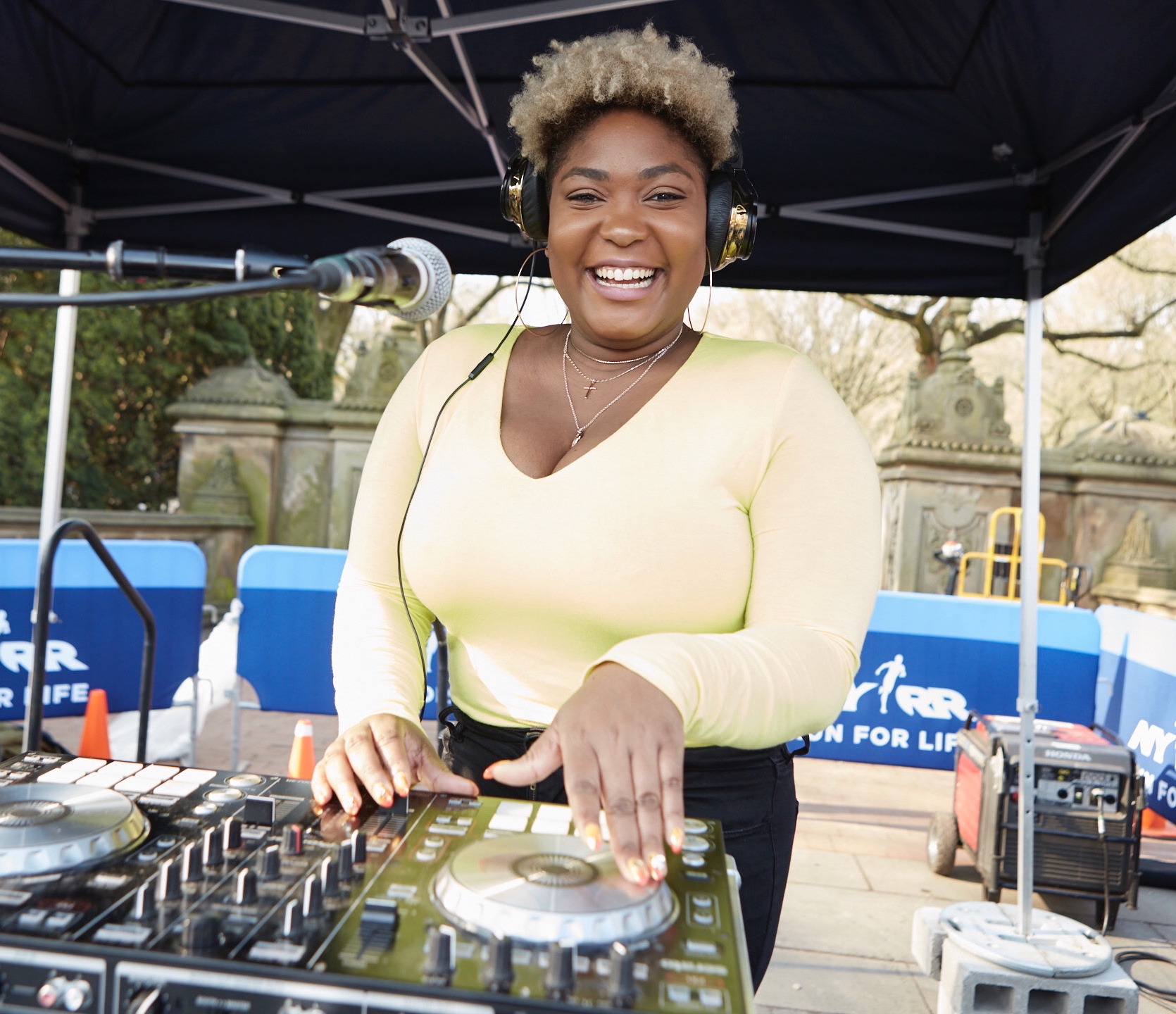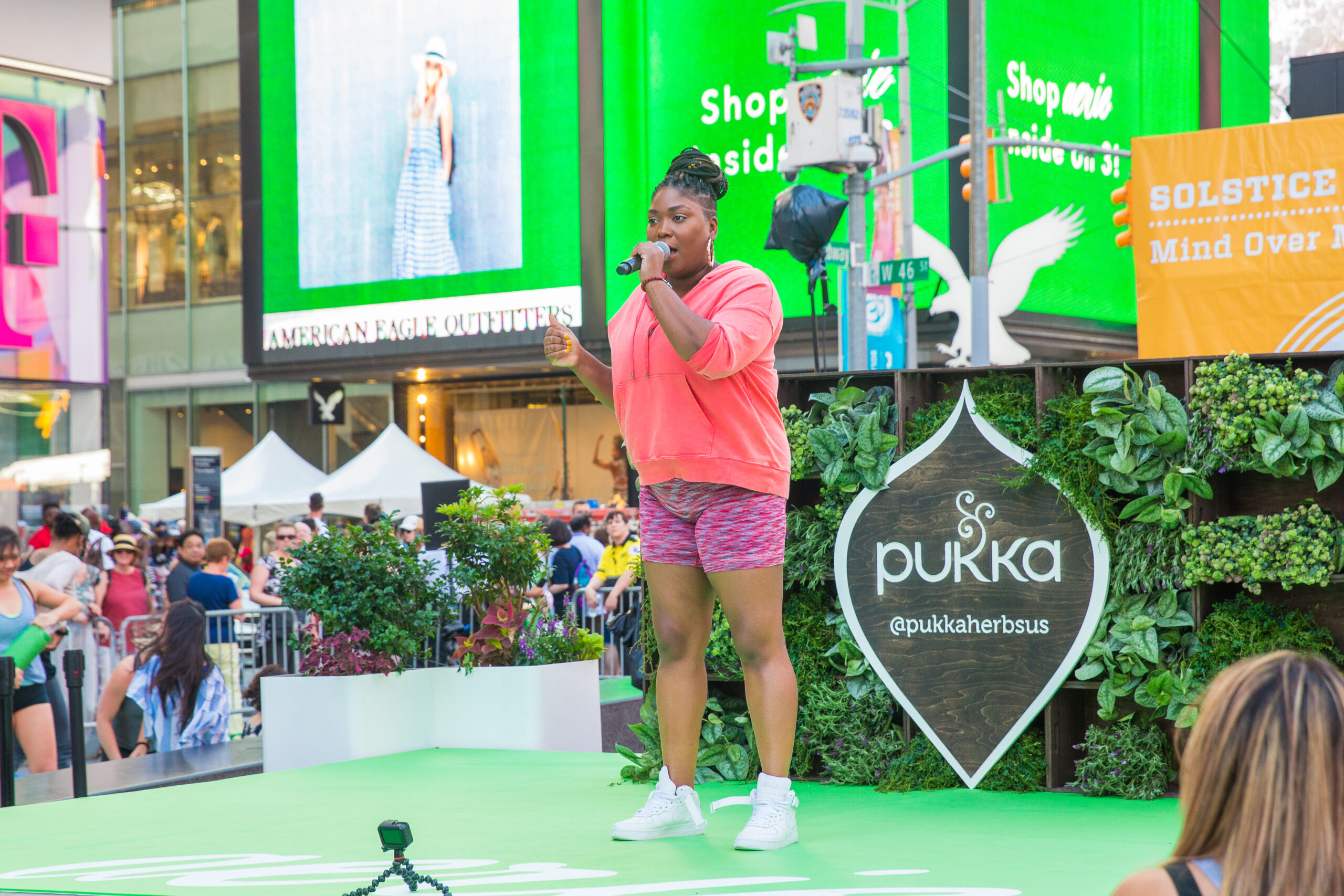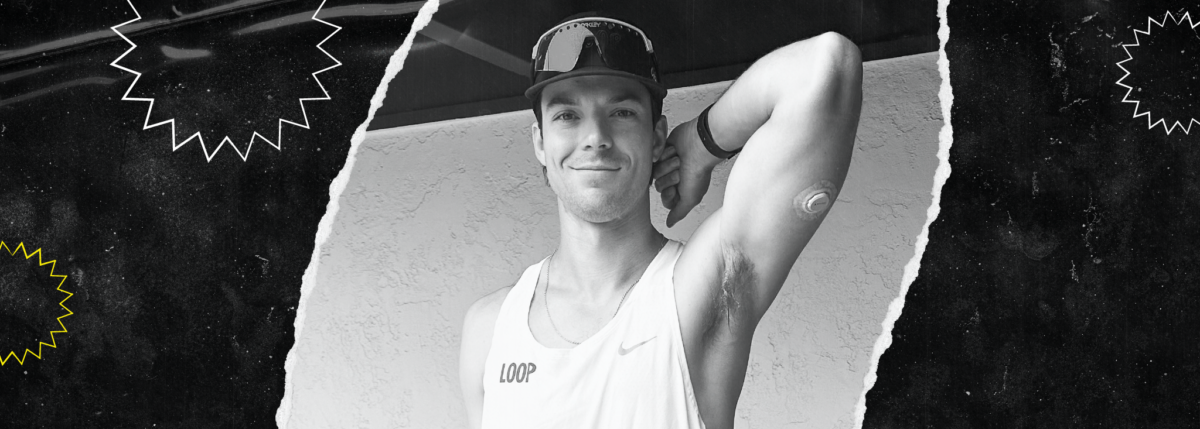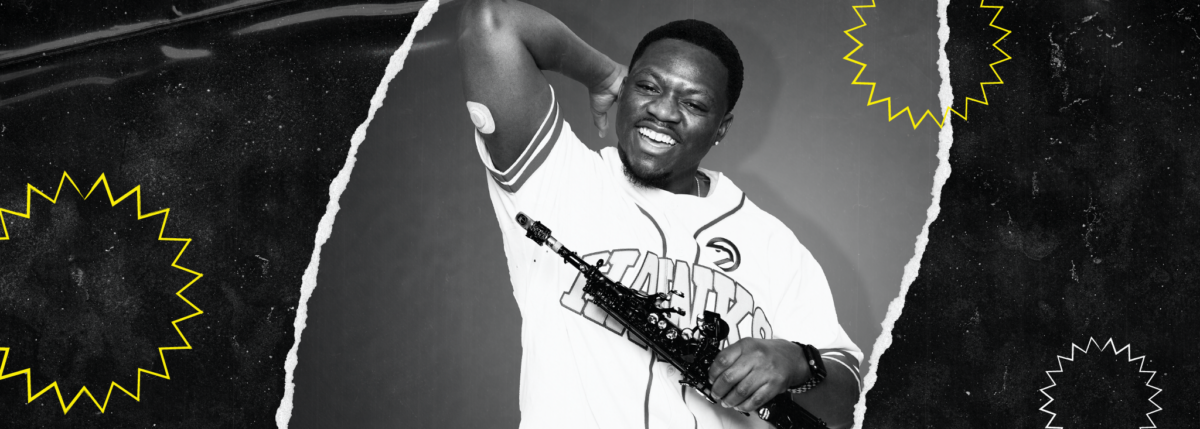Remaining Fierce in the Face of Type 2 Diabetes
Written by: T'ara Smith
8 minute read
October 2, 2019
Tiff McFierce is a DJ and Music Director for the NY Liberty Basketball Team. Diagnosed w/ Type 2 diabetes in 2017, she's remaining fierce in the face of it.
Editor’s Note: Get involved in Beyond Type 2’s #SeeTheSigns of diabetes campaign! Share your signs to help save lives, get sharable graphics for social media and more! Learn more here.
As the first woman and Black woman resident DJ at the famous Madison Square Garden in New York City, Tiff McFierce has always been able to help her audiences feel alive with music. However, a type 2 diabetes diagnosis in 2017 motivated Tiff McFierce, who is a sought after music director and DJ for celebs and brands like Aerie, the New York Liberty, Beautycon, Shape Magazine and more, to address issues surrounding an eating disorder such as binging and overeating, body dysmorphia and self-care.
Now, in addition to traveling the country curating music and public speaking, she promotes wellness, helps bridge the common gaps of everyday life and the practice of self-care with her brand Look IN vs. Lookin’. We chatted with McFierce about how she’s been able to overcome her challenges, mindful eating and the importance of advocating for yourself and your health—all of which help her remain fierce in the face of type 2 diabetes.
When were you diagnosed with Type 2 diabetes, and did you experience any symptoms?
I was diagnosed in 2017 when I finally decided to stop stalling and get checked by a doctor. I’d been feeling the symptoms since 2016. I knew something was wrong because I was always tired and sleepy. A different kind of tired than I’ve experienced during my daily grind. I would be in meetings for my web series and couldn’t stay awake. People I worked with even began to notice and at the time, I could only tell them I was exhausted. Then, my feet started to swell up and I knew [it was diabetes]—I’d heard this happened to people with diabetes. I also started experiencing headaches and started fainting, and I’m not someone who gets easily winded. In addition to that, I had to urinate a lot and I felt tingling in my legs.
 Were you surprised when you got the official diagnosis?
Were you surprised when you got the official diagnosis?
I wasn’t surprised. I’ve had trouble with overeating and binge eating and I gained 70 pounds over a two-year period. I eat a healthy diet and have been since 2012, but I was still struggling with an eating disorder. Also, I wasn’t surprised because my doctor told me once I was prediabetic in 2016. It could’ve been anything that triggered the diagnosis, but I think it was the unhealthy foods I was eating. However, I was upset at myself and then I was just scared and nervous.
My A1c was 9.5 percent and then it slowly started going down. The doctor I was seeing at the time was really adamant about having me start medication—metformin—right away but after doing my own research, I told her I’d change my diet instead. I ended up finding another doctor who listened to me.
Does diabetes run in your family?
That’s a tricky question because I don’t feel like type 2 diabetes runs in anybody’s family. I really don’t. I feel like environmental factors surrounding food have a big effect, especially in underserved communities of color; it’s no coincidence.
Can you talk more about the environmental aspect? Are you referring to food accessibility, the way we talk about food or the way we talk about access to healthcare?
I think it’s a mix of all those things. I feel like food accessibility and how it connects to diabetes, especially in underserved communities of color, are not a coincidence. Food deserts, as well as not being able to have accessibility to proper education on food or the healthcare system and access to proper healthcare are huge factors in the prevalence of diabetes.
You’re from the Bronx and of Jamaican descent, how did your cultural upbringing influence your attitudes about food?
Our foods are very flavorful, but what we use now is probably different than what our families used back then. Back then, foods weren’t processed so much, whereas now, it’s extremely difficult to know where your food is truly coming from. Even if you’re shopping organically, it’s hard to not wonder what’s in it that’s not being listed or how it’s being handled.
Families have a way of celebrating through food, so you eat whenever there’s a special occasion. That’s what I was taught growing up. There are other times when food is involved, too. When someone comes to your home, you offer them food. If you go to another person’s home, you take what’s offered to you—saying no can be perceived as rude. Sometimes, you’re not even mindfully eating, but eating to not be rude. I carried these lessons into adulthood.
That’s a big thing in Jamaican culture. You must have manners. If you refuse someone’s hospitality, that can be a no-no. So I think that those things are so prominent in our culture, especially things like eating all of your food. You cannot get up until you eat all your food. I know people from other cultural backgrounds who experienced similar things growing up, too.
Mindful eating can transform one’s relationship with food. Do you practice that today?
I do. It’s something I practice on a continuous basis every day. Mindful eating is the main thing. My aunt, Michelle Jervis, is a therapist and she gave me a book about mindful eating years ago that sparked the practice in me. Currently, I am reading The Brain over Binge Recovery Guide. I am still working through things that come with emotional overeating, and I find the book to be helpful with tips on continuing to release debilitating habits with other support like therapy, meditation and more. Still, I get caught up with life just like everyone else. If I’m rushing and I feel like I’ve got to eat right now if I won’t have the chance to later, I may grab whatever I can. But I do that with way more awareness of what I’m “grabbing”. Many Americans overeat in general because they’re eating while working, mindlessly snacking, etc. It’s something we all need to watch because way too many people are getting diabetes.
Sometimes I have to eat while I’m DJing, especially if I’m trying to maintain a steady eating schedule and keep my blood sugar regulated. Because diabetes or not, a lot of people don’t eat on time or eat enough. When I’m working, I keep a healthy snack around when I meal prep. Even then, I still practice mindful eating by focusing on my chewing and feeling the texture of those foods. Other little things I do are sitting at a table to eat instead of eating while watching something. Also, if I come off track, I practice being gentle with myself when getting back into focus.
 It sounds like you’ve come a long way. What are some ways you’re kind to yourself and practice self-care?
It sounds like you’ve come a long way. What are some ways you’re kind to yourself and practice self-care?
I really have. I think with our culture, especially when it’s wellness or weight-loss related, people got the game all twisted and feel the need to chase perfection. I’m not perfect, in fact, I’m someone who’s recovering from an eating disorder. With that said, I remain intentional with my actions each day and still have a long way to go. When caring for myself, I remain in the present. For example, if I’m running around and feel overwhelmed, I pause and check in with my breathing. If I’m tense or annoyed, I’ve noticed I don’t breathe well and it makes my body tense. A mantra I used recently was “This is an opportunity for me right now to move from a higher part of my brain and vibe.” I believe what you say to yourself is important. If you speak poorly about yourself to yourself, you’ll manifest those behaviors. I always aim to speak to myself in a compassionate way. I do the same with eating, too. It helps when I want to eat when I’m not really hungry.
Do you have friends or family who you’ve had to educate about diabetes or just building healthy habits in general? How have they supported you?
Yes and I’ve learned to be open enough to tell them if we’re going out, there are some foods I don’t want to eat and they’ve understood. But also, I realized my support systems needed to change. Why? Because people are dealing with their own issues and in the end, the most influential person in my support system is myself. That means setting boundaries with myself, accepting my flaws, accepting my body and being gentle with myself when I need to be. I started putting my energy into those things because I’m the only person who can advocate for me 24/7.
I’ve been a professional dancer for years and have been dancing since I was four years old. When you’re in an industry where people judge you based on your looks, and as a little Black girl who’s body changed a lot, I internalized a lot of the criticism and had body dysmorphia. I’ve binged eaten out of anger, tried to silence myself, words,and feelings. I mean that quite literally; I stuffed food down to stuff my pain. My healing over the years is focused on self-acceptance and unlearning the BS I was taught by the media and society. When my relationship with my body began to improve, it helped me perpetuate healthy behaviors for myself and no one else.
I discuss the concept of trusting yourself a lot in my wellness series, Look IN vs. Lookin’. My wellness series is about the intersection of wellness and everyday life. When it comes to finding support, it’s kind of like dating. You need to try a few things to figure out what works best for you while keeping in mind you are the top person in your support group. Be intentional and you’ll find people who are practicing self-care, too.
At our Look IN vs. Lookin’ events, we use music, movement and meditation to remind people finding your stillness should be tailor-made to YOU. You don’t have to just chant or sit crossed leg to meditate. Tap into the things you love and that can be your stillness. We also focus on mental health and wellness as a key component of “fitness”. I don’t care how many abs you have, if you’re unhappy on the inside, you WILL be unhappy no matter what type of body you have. I’ve experienced that, myself, first-hand so we provide safe spaces through events, panels, parties. I curate based on different themes like self-acceptance, stress, etc. and bring in expert fitness teachers, healers, mental health workers and more to support people finding a community that’s rooted in their personal intentions and goals. It’s mad lit, from within.
What are some misconceptions about diabetes you think people have?
For me, it was “okay, this doesn’t have to be a death sentence.” When I was diagnosed, I was freaking out until my doctor told me there’s hope and I could improve my health. It wouldn’t always be easy and it would take a real commitment, but I could definitely change.
How do you continue to live #BeyondPowerful with diabetes?
I continue to live beyond powerful as someone that’s had diabetes because I let it show I’m so much more than diabetes or any challenged I’ve faced. You are not your diabetes, your fitness goal, your anxiety—we’re so much more. I want people to know when I speak about this, I want them to know they shouldn’t be attached to their disease, circumstance, or whatever mindset that’s been holding them back. Instead, they should focus and be committed to living full lives. Disease is “dis-ease” and we can all overcome the mental and physical aspects of it. If you have diabetes, whether remission is your goal or not, you’re going to thrive with it, not just survive. It’s about how you live within and how you feel and care about yourself first.
To learn more about Tiff McFierce and her wellness brand, Look IN vs. Lookin’:
Visit her website at: http://tiffmcfierce.com/ and follow her on Instagram @tiffmcfierce and @Look_InvsLookin

Author
T'ara Smith
T’ara was diagnosed with type 2 diabetes in July 2017 at the age of 25. Since her diagnosis, she focused her academic studies and career on diabetes awareness and living a full life with it. She’s excited to have joined the Beyond Type 1 team to continue her work. Two years later, T'ara discovered she'd been misdiagnosed with type 2 and actually has latent autoimmune diabetes in adults (LADA). Outside the office, T’ara enjoys going to the movies, visiting parks with her dog, listening to BTS and cooking awesome healthy meals. T’ara holds an MS in Nutrition Education from American University.
Related Resources

Michael Costa’s running journey began with the desire to improve his health and better manage...
Read more

Jordan Sooter’s journey to running marathons began in college as a way to stay fit....
Read more

Antoine Gibson is no stranger to overcoming challenges. As a saxophonist and marathon runner living...
Read more